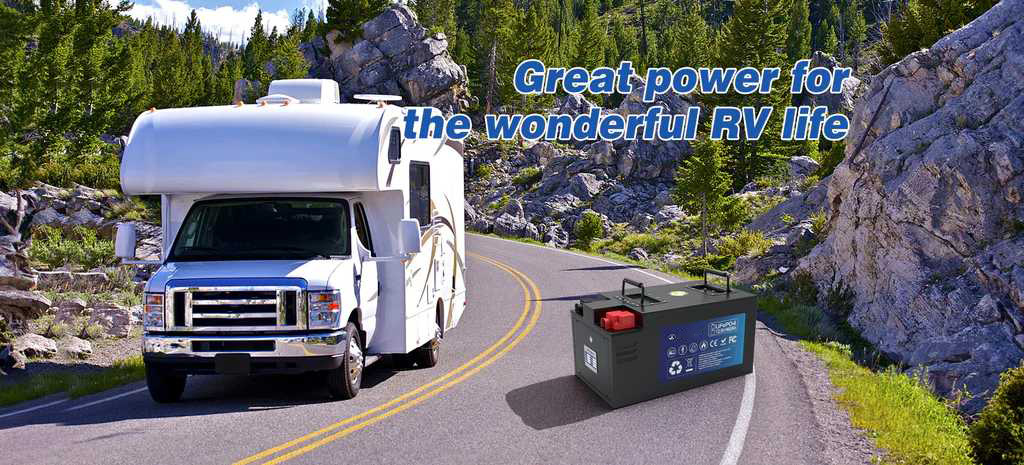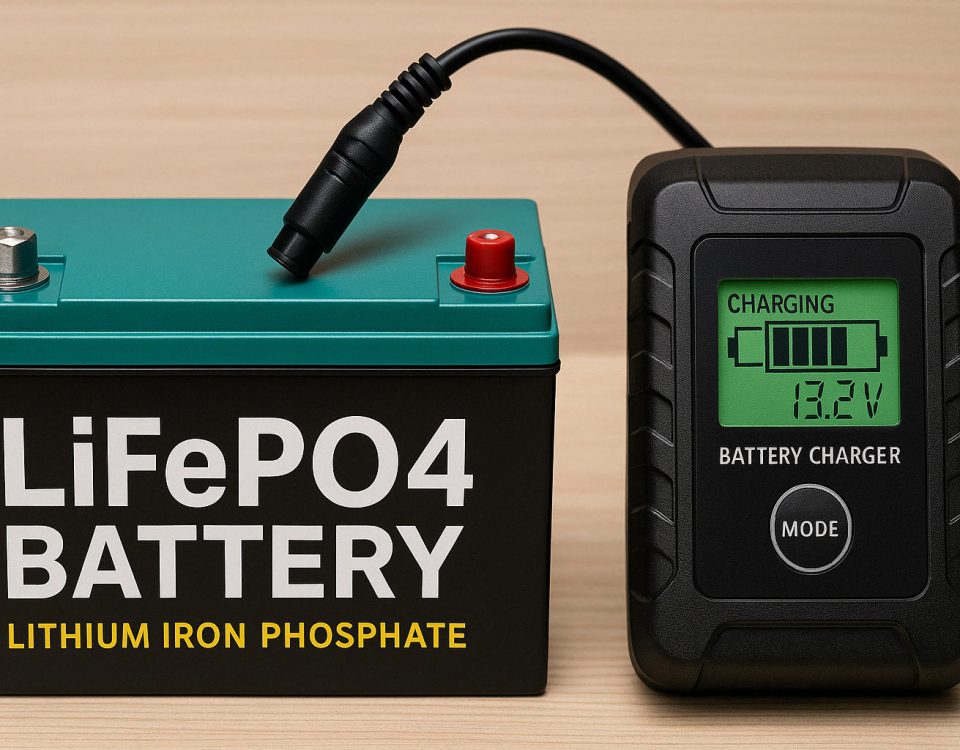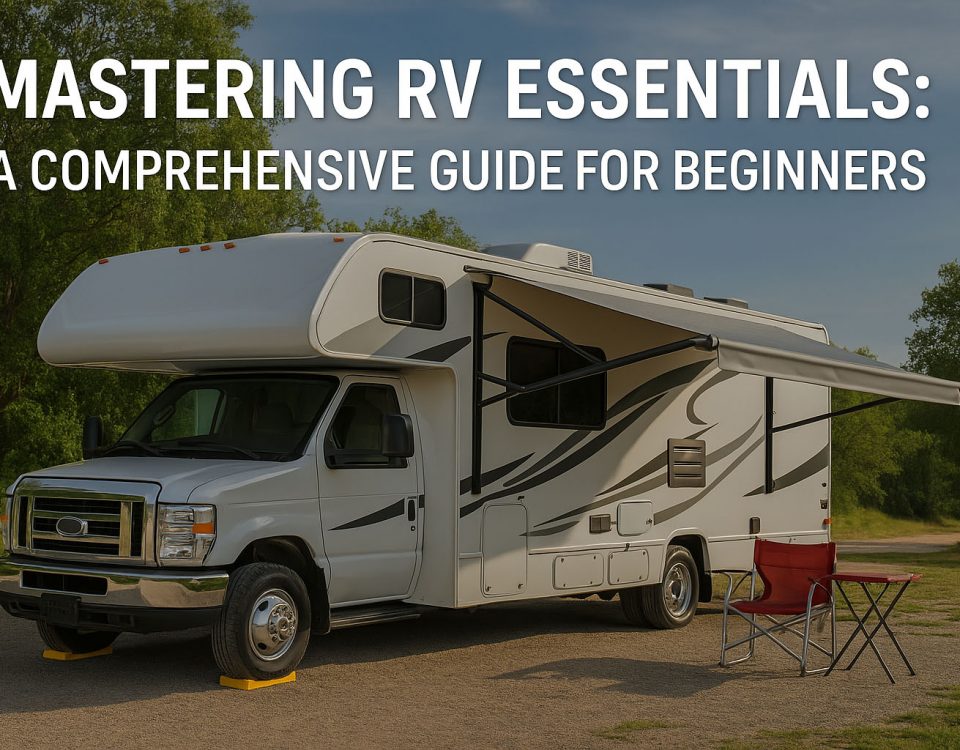Choosing the best battery for your RV is one of the most important decisions you can make as an RV owner. Whether you're planning weekend getaways or long-term travels, the battery is the backbone of your vehicle’s power system. With advancements in battery technology, it’s crucial to understand which option best fits your needs to ensure a comfortable and efficient RV experience. In this guide, we'll explore the different battery types available for RVs, key factors to consider, and how to make the most informed choice for your unique travel lifestyle.
The Importance of Choosing the Right Battery for Your RV
An RV battery powers everything from lighting and appliances to heating and water pumps when you’re off-grid. For anyone who enjoys boondocking (camping without hookups), a reliable and long-lasting battery is essential. Even for those who frequent campgrounds with electrical hookups, the right battery can offer peace of mind during power outages or periods of high energy demand.
RV owners today have more battery options than ever before, and understanding the nuances between the different types will help you make the most suitable choice for your adventures.
RV Battery Types: Lead-Acid, Lithium-Ion, and AGM
1. Lead-Acid Batteries
Lead-acid batteries are the oldest and most commonly used type of RV battery. They’re known for their affordability and availability but come with some significant drawbacks. These batteries are heavy, require regular maintenance, and have a shorter lifespan compared to more modern alternatives.
Pros:
- Lower upfront cost
- Widely available
Cons:
- Heavy and bulky
- Requires regular maintenance (like adding water)
- Shorter lifespan and cycle count
Lead-acid batteries are a good option for budget-conscious RV owners or those who use their RV infrequently. However, for long-term or frequent travelers, other options may be more beneficial.
2. Lithium-Ion Batteries
Lithium-ion batteries represent the cutting edge of RV battery technology. Known for their high energy density, long lifespan, and minimal maintenance, lithium batteries are becoming the preferred choice for RVers looking for the best performance. While they come with a higher upfront cost, the investment pays off in long-term savings and convenience.
Pros:
- Lightweight and compact
- Longer lifespan (up to 10 times more cycles than lead-acid)
- No maintenance required
- Fast charging capability
- Can be discharged more deeply without damaging the battery
Cons:
- Higher upfront cost
- Requires compatible charging systems
For RVers who spend extended time off-grid or frequently travel, lithium-ion batteries are a game-changer. Their lightweight design reduces the overall weight of the RV, and their long-lasting performance means you won’t need to worry about replacements for many years.
3. Absorbent Glass Mat (AGM) Batteries
AGM batteries are a type of sealed lead-acid battery that offers better performance and lower maintenance than traditional flooded lead-acid batteries. They are more expensive than standard lead-acid batteries but offer a middle ground between lead-acid and lithium-ion in terms of performance, cost, and maintenance.
Pros:
- Maintenance-free
- Spill-proof and safe to use in various orientations
- Better cycle count than lead-acid
Cons:
- More expensive than lead-acid
- Heavier than lithium-ion
- Shorter lifespan than lithium batteries
AGM batteries are a good option for RV owners looking for maintenance-free, reliable performance without the higher cost of lithium-ion. They perform well in moderate-use scenarios, such as occasional boondocking.
Key Factors to Consider When Choosing an RV Battery
Selecting the right RV battery goes beyond just the type. Here are some key factors to keep in mind to ensure your battery meets your needs:
1. Capacity
Battery capacity is measured in amp-hours (Ah), and it determines how much energy the battery can store. The higher the capacity, the longer your battery can run before needing to be recharged. Consider how much power your RV requires daily, especially if you plan on running high-energy appliances like air conditioning, refrigerators, or electric water heaters.
2. Weight
Weight is an important consideration, especially for RVs where every pound counts toward fuel efficiency and ease of handling. Lithium-ion batteries are much lighter than their lead-acid and AGM counterparts, making them a popular choice for those who want to reduce overall vehicle weight.
3. Lifespan
Battery lifespan refers to how many charge-discharge cycles a battery can undergo before its performance starts to degrade. Lithium-ion batteries have a much longer cycle life than both lead-acid and AGM batteries, often lasting up to 10 times longer. This translates to fewer replacements over the life of your RV, providing significant long-term cost savings.
4. Cost
The initial cost of an RV battery can vary significantly based on type and capacity. While lead-acid batteries are the cheapest option upfront, their shorter lifespan and need for regular maintenance often result in higher long-term costs. On the other hand, lithium-ion batteries come with a higher initial price tag but offer substantial savings over time due to their durability and efficiency.
5. Maintenance Requirements
Traditional lead-acid batteries require periodic maintenance, such as checking and refilling water levels. AGM batteries are maintenance-free, while lithium-ion batteries are not only maintenance-free but also have no risk of acid leaks or spills. If you prefer a hands-off approach to battery management, AGM or lithium-ion options are worth considering.
Conclusion: Making an Informed Choice for Your RV Power Needs
Choosing the right RV battery is about balancing performance, cost, and convenience. Lead-acid batteries may still be a good option for those on a tight budget or who use their RVs infrequently. However, for those looking to maximize efficiency and minimize maintenance, lithium-ion batteries are the clear choice.
AGM batteries offer a solid compromise for those seeking better performance than lead-acid without the high cost of lithium. Ultimately, your decision will depend on your travel habits, how often you camp off-grid, and your willingness to invest in the long-term performance of your RV.
About RICHYE
RICHYE is a leading lithium battery manufacturer, known for producing reliable, high-quality batteries that offer superior performance, safety, and longevity. Whether you’re upgrading your RV or looking for energy-efficient solutions for other applications, RICHYE’s lithium batteries deliver unmatched value. Trusted by industries around the world, RICHYE offers batteries designed to meet the needs of today’s demanding consumers at competitive prices.
By considering factors such as capacity, weight, lifespan, and cost, you can confidently select the best battery for your RV and enjoy a seamless, worry-free experience on the road. Whether you’re a weekend warrior or a full-time traveler, investing in the right battery will keep your RV powered and ready for whatever adventure comes your way.




